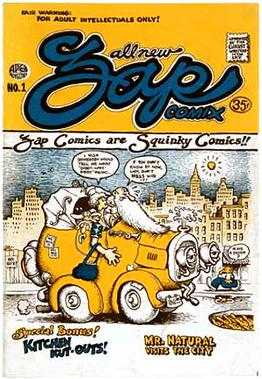
Underground comix are small press or self-published comic books that are often socially relevant or satirical in nature. They differ from mainstream comics in depicting content forbidden to mainstream publications by the Comics Code Authority, including explicit drug use, sexuality, and violence. They were most popular in the United States in the late 1960s and 1970s, and in the United Kingdom in the 1970s.

Last Gasp is a San Francisco–based book publisher with a lowbrow art and counterculture focus. Owned and operated by Ron Turner, for most of its existence Last Gasp was a publisher, distributor, and wholesaler of underground comix and books of all types.

Weirdo was a magazine-sized comics anthology created by Robert Crumb and published by Last Gasp from 1981 to 1993. Featuring cartoonists both new and old, Weirdo served as a "low art" counterpoint to its contemporary highbrow Raw, co-edited by Art Spiegelman.

Kitchen Sink Press was a comic book publishing company founded by Denis Kitchen in 1970. Kitchen Sink Press was a pioneering publisher of underground comics, and was also responsible for numerous republications of classic comic strips in hardcover and softcover volumes. One of their best-known products was the first full reprint of Will Eisner's The Spirit—first in magazine format, then in standard comic book format. The company closed in 1999.

Tom Veitch was an American writer, known for his work in the comic book industry. He was also a novelist and a poet. He was the brother of comics writer and artist Rick Veitch.
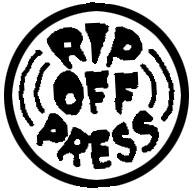
Rip Off Press Inc. is a comic book mail order retailer and distributor, better known as the former publisher of adult-themed series like The Fabulous Furry Freak Brothers and Rip Off Comix, as well as many other seminal publications from the underground comix era. Founded in 1969 in San Francisco by four friends from Austin, Texas — cartoonists Gilbert Shelton and Jack Jackson, and Fred Todd and Dave Moriaty — Rip Off Press is now run in Auburn, California, by Todd.
Rory Hayes was an American underground cartoonist in the late 1960s and early 1970s. His comics were drawn in an expressionistic, primitivist style and usually dealt with grim subject matter such as paranoia, violent crime, and drug abuse. In addition to his own titles, Bogeyman and Cunt Comics, he was published in many of the most prominent comics in the underground scene, including Bijou Funnies and Arcade.

Greg Irons was an American poster artist, underground cartoonist, animator and tattoo artist.
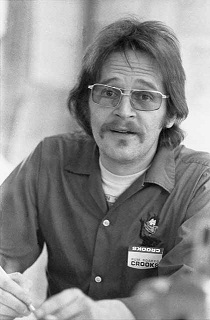
Dave Sheridan was an American cartoonist and underground comix artist. He was the creator of Dealer McDope and collaborated with Gilbert Shelton and Paul Mavrides on The Fabulous Furry Freak Brothers. As creative partner with fellow underground creator Fred Schrier, using the name "Overland Vegetable Stagecoach," they worked on Mother's Oats Funnies, published by Rip Off Press from 1970 to 1976.
Fred Schrier is an artist, writer, and animator, best known as partner to the underground comic book artist Dave Sheridan. Together, using the name "Overland Vegetable Stagecoach," they worked on Mother's Oats Comix, published by Rip Off Press from 1970 to 1976.
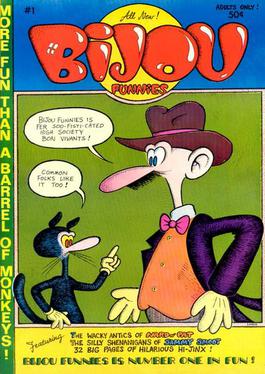
Bijou Funnies was an American underground comix magazine which published eight issues between 1968 and 1973. Edited by Chicago-based cartoonist Jay Lynch, Bijou Funnies featured strong work by the core group of Lynch, Skip Williamson, Robert Crumb, and Jay Kinney, as well as Art Spiegelman, Gilbert Shelton, Justin Green, and Kim Deitch. Bijou Funnies was heavily influenced by Mad magazine, and, along with Zap Comix, is considered one of the titles to launch the underground comix movement.

Donald Richard Donahue was a comic book publisher, operating under the name Apex Novelties, one of the instigators of the underground comix movement in the 1960s.
Gary Edson Arlington was an American retailer, artist, editor, and publisher, who became a key figure in the underground comix movement of the 1960s and 1970s. As owner of one of America's first comic book stores, the San Francisco Comic Book Company, located in San Francisco's Mission District, Arlington's establishment became a focal point for the Bay Area's underground artists. He published comics under the name San Francisco Comic Book Company, as well as publishing and distributing comics under the name Eric Fromm. Cartoonist Robert Crumb has noted, "Gary made a cultural contribution in San Francisco in the late 1960s, through the '70s, '80s & '90s that was more significant than he realizes."

Young Lust was an underground comix anthology published sporadically from 1970 to 1993. The title, which parodied 1950s romance comics such as Young Love, was noted for its explicit depictions of sex. Unlike many other sex-fueled underground comix, Young Lust was generally not perceived as misogynistic. Founding editors Bill Griffith and Jay Kinney gradually morphed the title into a satire of societal mores. According to Kinney, Young Lust "became one of the top three best-selling underground comix, along with Zap Comix and The Fabulous Furry Freak Brothers".

Company & Sons was an early underground comix publisher based in San Francisco, ran by John Bagley. The company operated from 1970 to 1973, publishing a total of 15 titles, all but one of them consisting of a single issue.
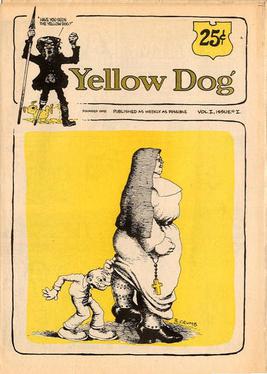
Yellow Dog was an underground comix newspaper and later comic book published by the Print Mint in Berkeley, California. It published 22 issues from 1968 to 1973, featuring many of the period's most notable underground cartoonists, including Robert Crumb, Joel Beck, Robert Williams, Rick Griffin, Greg Irons, and Trina Robbins. Other frequent contributors included Andy Martin, Franz Cilensek, John Thompson, Buckwheat Florida, Jr., Jim Osborne, Ronald Lipking, and Hak Vogrin. The founding editor was Print Mint co-publisher Don Schencker.

San Francisco Comic Book was an underground comix anthology published between 1970 and 1983. Conceived of and edited by Gary Arlington, the anthology highlighted the work of many of San Francisco's top underground talents, including Bill Griffith, Robert Crumb, Kim Deitch, Justin Green, Rory Hayes, Willy Murphy, Jim Osborne, Trina Robbins, and Spain Rodriguez.
Willy Murphy was an American underground cartoonist. Murphy's humor focused on hippies and the counterculture. His signature character was Arnold Peck the Human Wreck, "a mid-30s beanpole with wry observations about his own life and the community around him." Murphy's solo title was called Flamed-Out Funnies; in addition, he contributed to such seminal underground anthologies as Arcade, Bijou Funnies, and San Francisco Comic Book, as well as the National Lampoon.
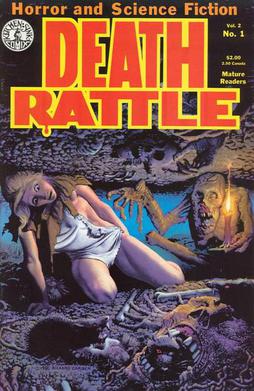
Death Rattle was an American black-and-white horror anthology comic book series published in three volumes by Kitchen Sink Press in the 1970s, 1980s, and 1990s. Death Rattle is not related to the Australian one-shot comic Death Rattle, published by Gredown in c. 1983.
Keith Green was an American publisher, distributor, and art dealer. Starting out in the late 1960s as an underground comix distributor, in the early 1970s, he published comics, and by the mid-1970s he had become a New York City art dealer. He was the younger brother of cartoonist Justin Green.















